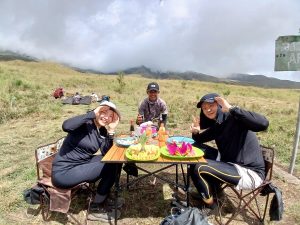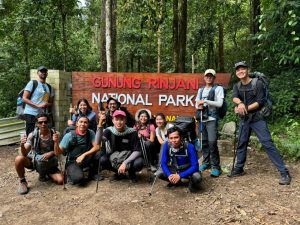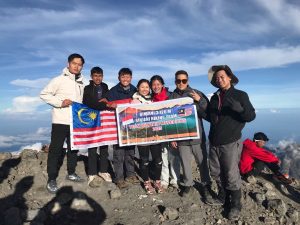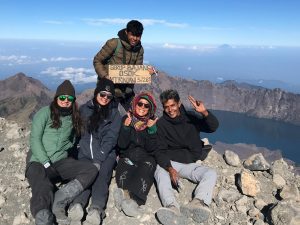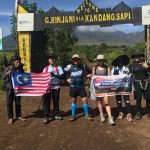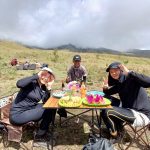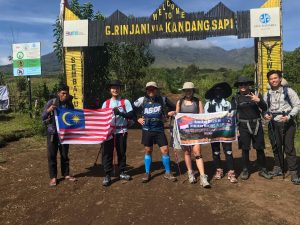
- +62 85951713852
- info@rinjanihiker.com
- Teres Genit, Lombok
BOOK NOW
For More detail trekking tour information or book our Rinjani trip package please do not hesitate to contact us.

Sustainable Tourism at Mount Rinjani: How to Trek Responsibly
Mount Rinjani, an iconic volcano on the island of Lombok, Indonesia, stands as a beacon for adventurers and nature lovers from around the world. However, with its increasing popularity, the need for sustainable tourism practices has become more critical than ever. This guide provides insights into how you can trek responsibly and contribute to the preservation of this natural wonder.
Understanding Sustainable Tourism
Sustainable tourism is about minimizing the negative impact of tourism on the environment and local communities while enhancing the benefits. It involves practices that protect natural resources, respect local cultures, and support the well-being of local people.
Why Sustainable Tourism Matters at Mount Rinjani
Mount Rinjani is a fragile ecosystem with diverse flora and fauna. The influx of tourists, if not managed properly, can lead to significant environmental degradation, including:
- Littering and Waste Management Issues: An increase in garbage along the trails and campsites.
- Trail Erosion: Overuse of certain paths can lead to soil erosion and damage to vegetation.
- Disturbance to Wildlife: Increased human activity can disrupt local wildlife habitats.
- Impact on Local Communities: Without sustainable practices, tourism can negatively affect the culture and daily lives of local communities.
How to Trek Responsibly
1. Plan Ahead and Prepare
- Research and Choose Responsible Tour Operators: Select operators who are committed to sustainable practices. They should have policies in place for waste management, use local guides and porters, and support conservation efforts.
- Permits and Regulations: Ensure you have the necessary permits and follow all regulations set by the Rinjani National Park authorities.
2. Minimize Waste
- Carry In, Carry Out: Bring reusable water bottles, food containers, and bags. Take all your trash back with you.
- Biodegradable Products: Use biodegradable soap and toiletries to minimize chemical impact on the environment.
3. Respect Wildlife and Nature
- Stay on Marked Trails: This helps protect the vegetation and prevent soil erosion.
- Observe Wildlife from a Distance: Do not disturb animals or their habitats.
- Leave No Trace: Leave natural objects, such as rocks and plants, as you find them.
4. Support Local Communities
- Hire Local Guides and Porters: This provides economic benefits to the local community and ensures that you receive knowledgeable guidance.
- Respect Local Culture: Learn about and respect the customs and traditions of the Sasak people and other local communities.
- Buy Local Products: Purchase souvenirs and supplies from local vendors to support the local economy.
5. Conserve Water and Energy
- Limit Use of Natural Resources: Use water sparingly, especially in campsites where it may be limited.
- Energy Conservation: Use energy-efficient camping gear and avoid unnecessary use of resources.
6. Educate Yourself and Others
- Learn About the Environment: Understanding the local ecosystem can help you make more responsible choices.
- Spread Awareness: Share your knowledge and experiences with others to promote sustainable tourism practices.
7. Participate in Conservation Efforts
- Volunteer Programs: Consider joining conservation projects or clean-up drives organized by local groups or NGOs.
- Support Environmental Initiatives: Contribute to organizations that are working towards the preservation of Mount Rinjani and its surroundings.
Benefits of Sustainable Tourism
- Environmental Preservation: Protects natural landscapes and biodiversity.
- Cultural Respect: Enhances the relationship between tourists and local communities by fostering respect and understanding.
- Economic Benefits: Provides sustainable income for local people without exploiting resources.
- Enhanced Experience: A cleaner, well-preserved environment offers a more enjoyable and authentic experience for tourists.
Conclusion
Trekking Mount Rinjani responsibly ensures that this majestic volcano remains a pristine destination for future generations. By adopting sustainable tourism practices, you can play a crucial role in preserving the natural beauty and cultural heritage of Mount Rinjani. Remember, every small effort counts in making a big difference.

Rinjani Hiker is a tour package provider that offers unique and unforgettable experiences for travelers.
